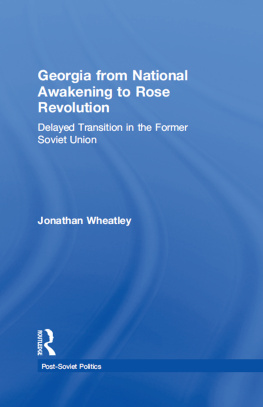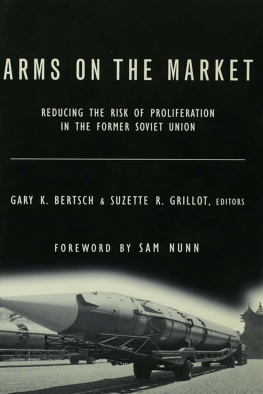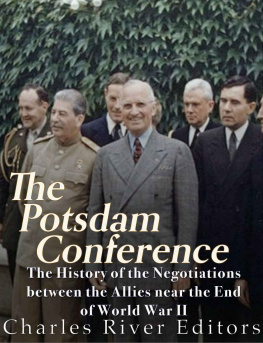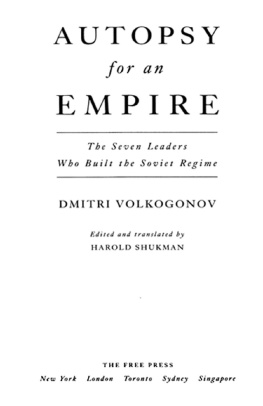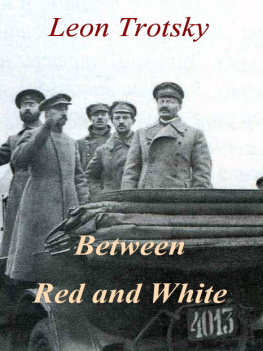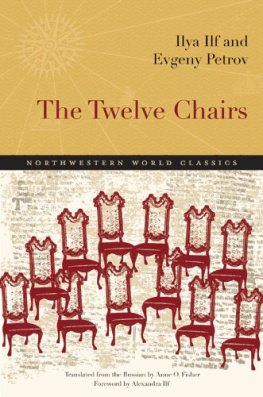Lavrenty Beria - Fifteen Years of Soviet Georgia
Here you can read online Lavrenty Beria - Fifteen Years of Soviet Georgia full text of the book (entire story) in english for free. Download pdf and epub, get meaning, cover and reviews about this ebook. City: Moscow, year: 1936, publisher: Cooperative Publishing Society of Foreign Workers in the USSR, genre: History. Description of the work, (preface) as well as reviews are available. Best literature library LitArk.com created for fans of good reading and offers a wide selection of genres:
Romance novel
Science fiction
Adventure
Detective
Science
History
Home and family
Prose
Art
Politics
Computer
Non-fiction
Religion
Business
Children
Humor
Choose a favorite category and find really read worthwhile books. Enjoy immersion in the world of imagination, feel the emotions of the characters or learn something new for yourself, make an fascinating discovery.

- Book:Fifteen Years of Soviet Georgia
- Author:
- Publisher:Cooperative Publishing Society of Foreign Workers in the USSR
- Genre:
- Year:1936
- City:Moscow
- Rating:4 / 5
- Favourites:Add to favourites
- Your mark:
- 80
- 1
- 2
- 3
- 4
- 5
Fifteen Years of Soviet Georgia: summary, description and annotation
We offer to read an annotation, description, summary or preface (depends on what the author of the book "Fifteen Years of Soviet Georgia" wrote himself). If you haven't found the necessary information about the book — write in the comments, we will try to find it.
Fifteen Years of Soviet Georgia — read online for free the complete book (whole text) full work
Below is the text of the book, divided by pages. System saving the place of the last page read, allows you to conveniently read the book "Fifteen Years of Soviet Georgia" online for free, without having to search again every time where you left off. Put a bookmark, and you can go to the page where you finished reading at any time.
Font size:
Interval:
Bookmark:
Fifteen years of Soviet power in Georgia these are splendid pages in the new history of the Georgian people.
Under the banner of the Leninist-Stalinist national policy the peoples of Soviet Georgia, in close collaboration with the peoples of the whole Soviet Union, are successfully, victoriously building socialism.
The national policy of tsarism was one of colonizing and Russifying, of mercilessly oppressing and exploiting the enslaved nationalities.
In its policy of aggression towards the South and the East, Russian tsarism struck its greedy claws deep into the body of the peoples of Georgia.
Tsarism endeavoured to strengthen and maintain its rule in Georgia by relying for support on the Georgian princes, nobles and landlords, whom it privileged to exploit and despoil the masses.
The enslaved peasantry of Georgia repeatedly rebelled against the oppression and violence of the landlords and the absolute monarchy of the tsar.
In 1812-13 there were peasant uprisings in Kakhetia; in 1841 in Gurya; in 1857 in Mingrelia; in 1858 in Imeretia.
The tsarist generals, princes and landlords meted out bloody reprisals in suppressing the revolutionary uprisings of the peasants.
"The rebellious villages," wrote General Yermolov, governor-general of Georgia, in his letters published in 1868, "were laid waste and burned, orchards and vineyards were cut down to the very root, and it will be many years before the traitors regain their former state. Utter beggary shall be their punishment."
The waves of revolutionary struggle against the monarchy rose up with new force among the toiling people of Georgia when the working class of Georgia and Transcaucasia entered upon the scene of class struggle.
The years 1902-05 were marked by continual disturbances, by peasant risings and workers strikes.
In a "report addressed to His Majesty the Emperor" in 1907, the vice-regent of the Caucasus, Vorontsov-Dashkov, was obliged to admit the extreme stubbornness with which the working masses of Georgia fought for their liberation against the monarchy, the landlords and capitalism.
"By the time of my arrival in this territory," wrote Vorontsov-Dashkov, "the revolutionary movement here, evidently in connection with that throughout the whole empire, had already assumed proportions dangerous to law and order. I instantly declared martial law in the city of Tiflis.... At the same time part of the Tiflis gubernia and the whole of the Kutais gubernia were affected by unrest among the rural population, accompanied by attacks on landlords estates, refusal of the peasants to pay taxes or recognize the rural authorities, the forcible seizure of private lands, the illegal cutting of huge quantities of timber in state and privately owned woods.... In Tiflis, Baku and other cities there were almost daily strikes among workers of all trades, including domestic servants....
"As a result of the general strike of postal, telegraph and railway workers, the Kutais gubernia was completely cut off from Tiflis. All railway stations within its borders were seized by armed revolutionaries. The Suram tunnel was blocked by two locomotives, which had been run head on against one another in order to hold up the transport of troops from Tiflis....
"At the slightest resistance the rural administration offices were sacked and burned by mobs of peasants. Throughout the whole countryside meetings and demonstrations were held, openly propagating the idea of complete equality between estates, of destroying capitalism and changing the existing system of government.... Various repressive measures have been taken by the Caucasian administration against the above-mentioned movement among the rural masses of Georgia. Beginning with 1902, troops have repeatedly been sent to Gurya, floggings have been administered to the inhabitants of villages, agitators have been arrested and deported from the region..."
This was what the tsarist satrap, who was genuinely scared, had to report about the revolutionary movement of the workers and peasants of Georgia.
Even such a satrap as Vorontsov-Dashkov, in the following strictly confidential report addressed to the tsar, had to admit the extreme gravity of the Georgian peasantrys economic position; he is evidently trying to justify himself before the tsar and to shift the responsibility for the revolutionary events taking place in Georgia on to the shoulders of his predecessors the previous governors of Georgia and the Caucasus.
"The abolition of feudal rights in Transcaucasia and especially in Georgia," he wrote, "was carried out on conditions particularly favourable for the landlords and unfavourable for the peasants, besides which... it has benefited the landlords by increasing the land duties in comparison with the rate prevailing in feudal times.... Items liable to quit-rent are sought out on all sorts of pretexts, true and false. If timber grows on part of the peasants land it is immediately turned into state property liable to quit-rent; if another part of their land is covered with water owing to a river changing its bed, it is at once declared liable to quit-rent for fishing rights.... Things have gone so far that the very nut trees grown by the villagers themselves on their own farm land are declared state property liable to quit-rent.
"The peasants, while occupying a total area of land twice as great as that of private owners, have been paying twenty times as much as the private owners in money dues alone."
On top of this exploitation of the working peasant masses came the arbitrary violence of the nobles, princes, officials and police.
Bribery and violence were rife in the rural courts and offices of administration; the Georgian landlords together with the tsarist police officials flogged, tortured and ruthlessly exploited the working people.
There were innumerable punitive expeditions and floggings, accompanied by brutal atrocities.
The policy of colonization was pushed forward by settling large numbers of Germans, Anatolian Greeks, Turkish Armenians and Russian dissenters on Georgian land.
Out of a total of 4,670,000 rubles expended on rural administration, 57 per cent went on the upkeep of the police force, while only 4 per cent was spent on education. The schools were a medium for putting into effect the policy of Russification. There were few schools, and even in what schools there were the standard of teaching was at a very low level indeed.
A direct result of this policy of tsarism was the mass illiteracy of the population.
"Tsarism," wrote Stalin, "deliberately fostered patriarchal and feudal oppression in the border lands, in order to keep the masses in slavery and ignorance. Tsarism deliberately settled colonizing elements in the best corners of the border lands, in order to drive the local population into worse districts and intensify national animosity. Tsarism handicapped, and sometimes simply abolished, the local schools, theatres, educational institutions, in order to keep the masses in darkness. Tsarism cut short all initiative on the part of the best members of the local population. Finally, tsarism killed all activity on the part of the masses of people in the border lands."1
1 Stalin, "The Policy of the Soviet Power on the National Question in Russia." Article published in Pravda, October 10, 1920.
But at the very time when the tsarist monarchy was forming a bloc with Georgias national bourgeoisie, with the princes, nobles and landlords, in order to strengthen its oppressive rule over the toiling masses of enslaved nationalities at the very time when it was seeking to inflame national hatred, the foremost representatives of the working class and toiling masses of Russia and Georgia were establishing a close international union between one another for struggle against the monarchy, against capitalism.
Next pageFont size:
Interval:
Bookmark:
Similar books «Fifteen Years of Soviet Georgia»
Look at similar books to Fifteen Years of Soviet Georgia. We have selected literature similar in name and meaning in the hope of providing readers with more options to find new, interesting, not yet read works.
Discussion, reviews of the book Fifteen Years of Soviet Georgia and just readers' own opinions. Leave your comments, write what you think about the work, its meaning or the main characters. Specify what exactly you liked and what you didn't like, and why you think so.


